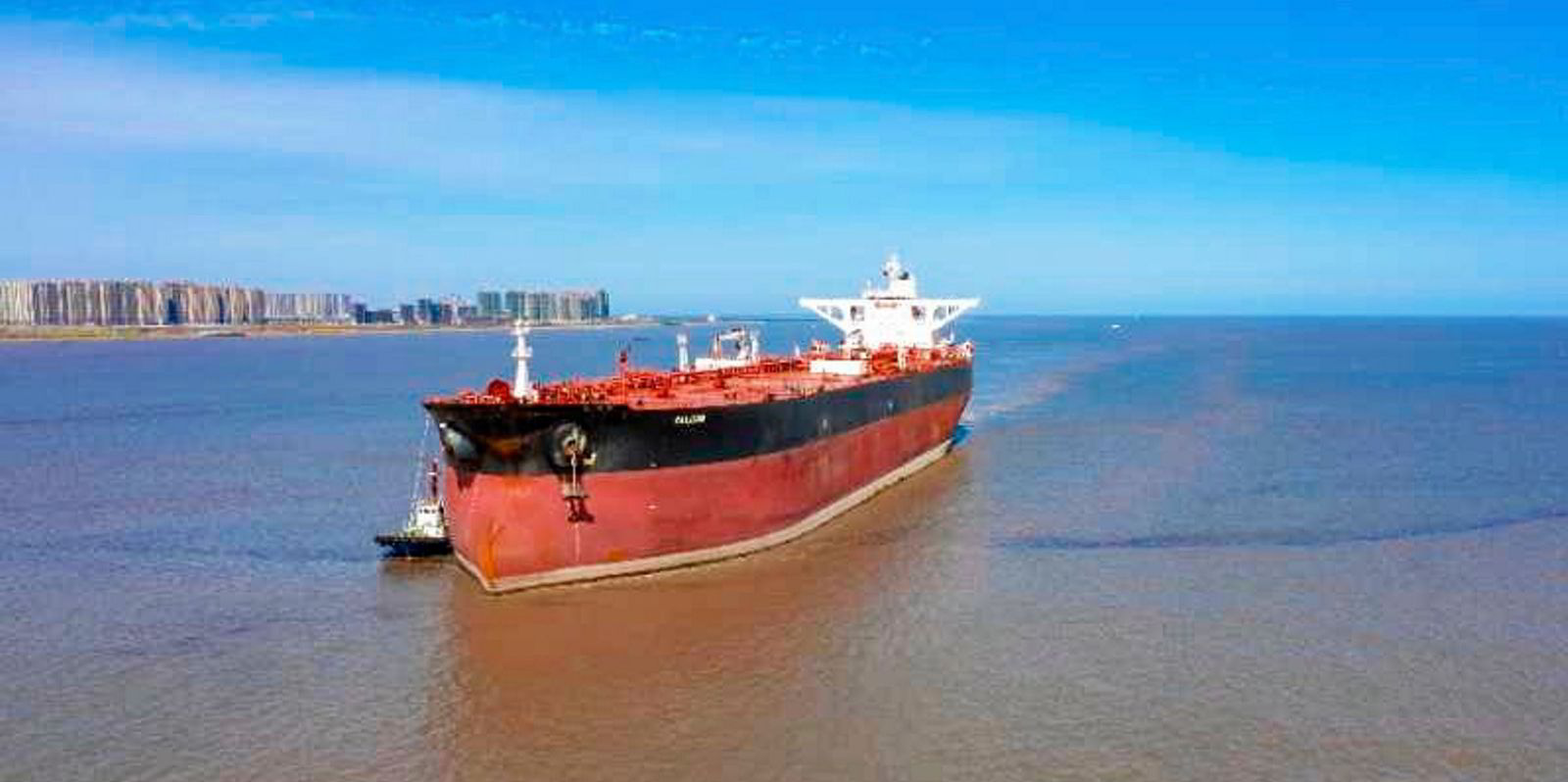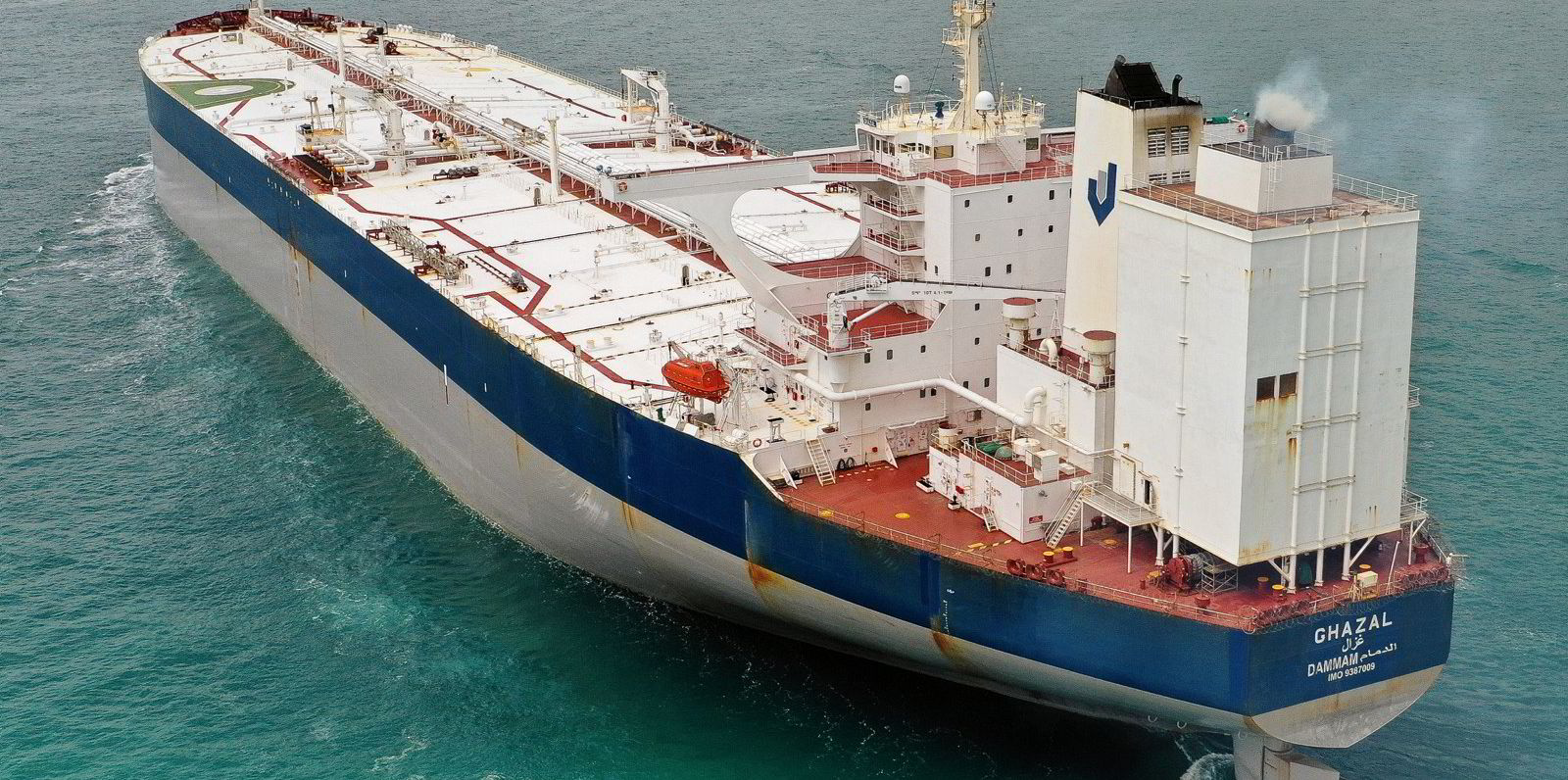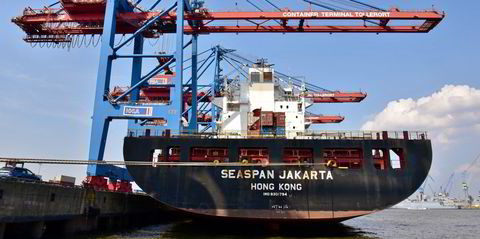Brisker business for VLCCs in the Middle East Gulf has pushed up rates as vessel lists shrank.
Earnings for trips into Asia jumped 31% week-on-week at $33,000 per day.
And Fearnley Securities estimated eco ships with scrubbers fitted at more than $50,000 per day.
The Angelicoussis Group’s older 318,000-dwt VLCC Maran Lupus (built 2009) managed an actual time charter equivalent (TCE) rate of $36,576 per day over 52 days from West Africa to northern Europe for ExxonMobil, according to pools operator Tankers International.
Cleaves Securities said rates were supported by increased activity and shortened tonnage lists as rates firmed across all routes.
The investment bank calculated average earnings up 14% week-on-week to $43,000 per day.
UK shipbroker Howe Robinson Partners noted plenty of inquiries for VLCCs on Friday in the Middle East Gulf, but “not so much business concluded”.
“This would indicate to an extent that owners’ ideas are a bit firmer than charterers’ current view on the market. Confidence from the owners remains high and owners on the whole have firmer rate ideas,” the London shop said.
Over the weekend, the US government announced a 6m barrel restocking of its strategic petroleum reserve.
This will involve 3m barrels being bought at an average price of $73 per barrel for delivery in August, plus the same again in September.
A record 180m barrels of crude were released from the reserve in 2022.
Fewer cargoes?
Fearnley Securities believes this will mean a few less export cargoes up for grabs for crude tankers.
Cleaves Securities said average suezmax earnings dropped 15% in the last seven days to $48,000 per day, despite increased activity from the US Gulf at the start of last week.
And average aframax numbers softened 3% to $54,000 per day as enquiries suffered a downturn.
Both smaller classes remain at firm levels, however.
Clarksons Research said the recent announcement by Saudi Arabia of an additional 1m barrel per day cut to oil output in July suggests the potential for some softening at the larger end of the crude tanker market in the short term,
But the UK research arm of shipbroker Clarksons noted improving Chinese crude imports and continuing Russia-related shifts in trade patterns towards longer routes should provide underlying support to the sector, especially in the smaller crude segments.





